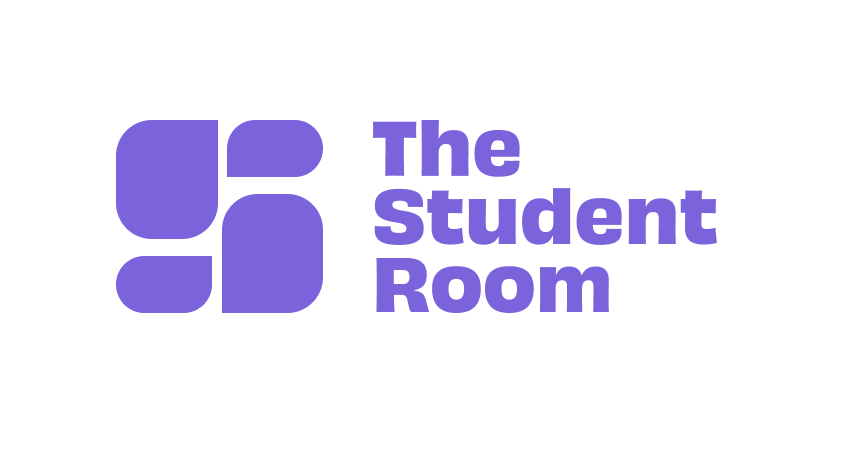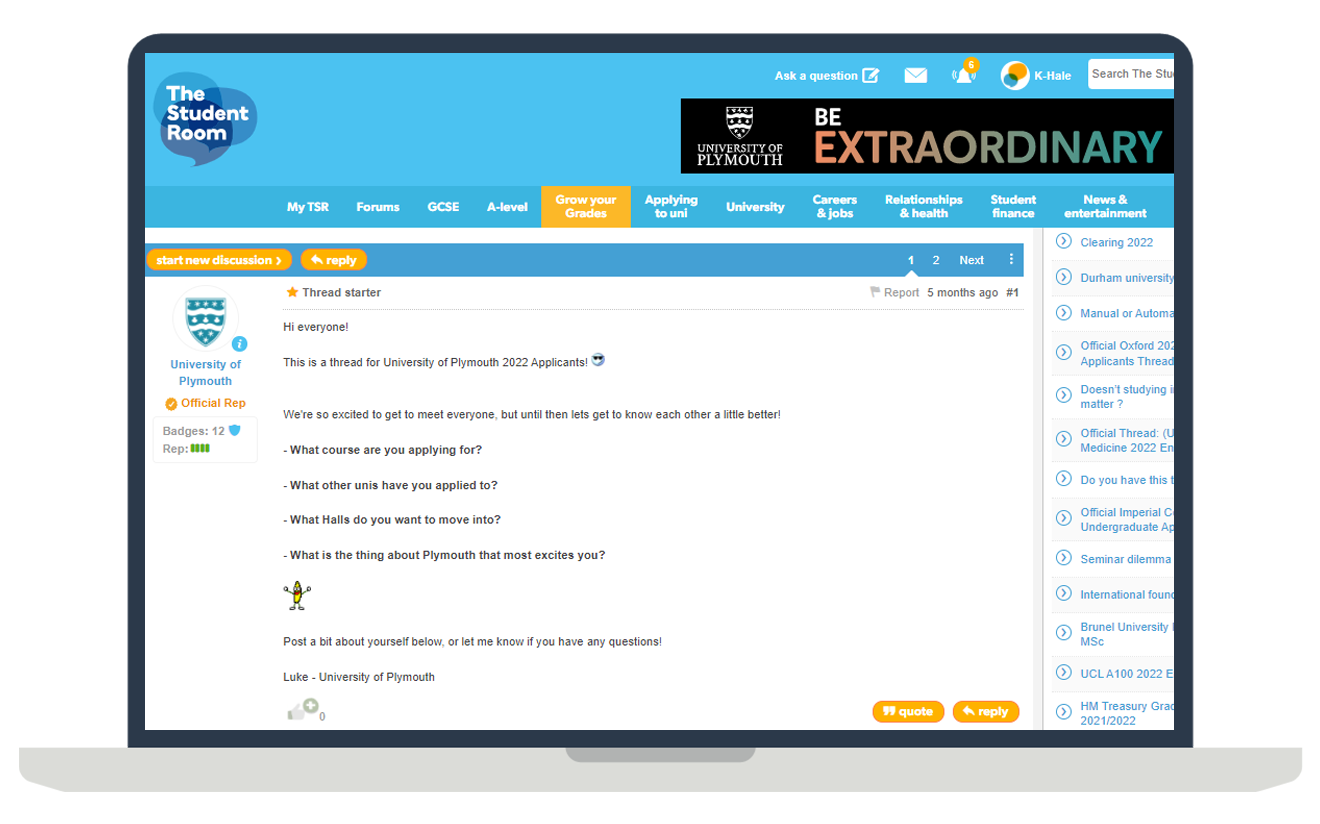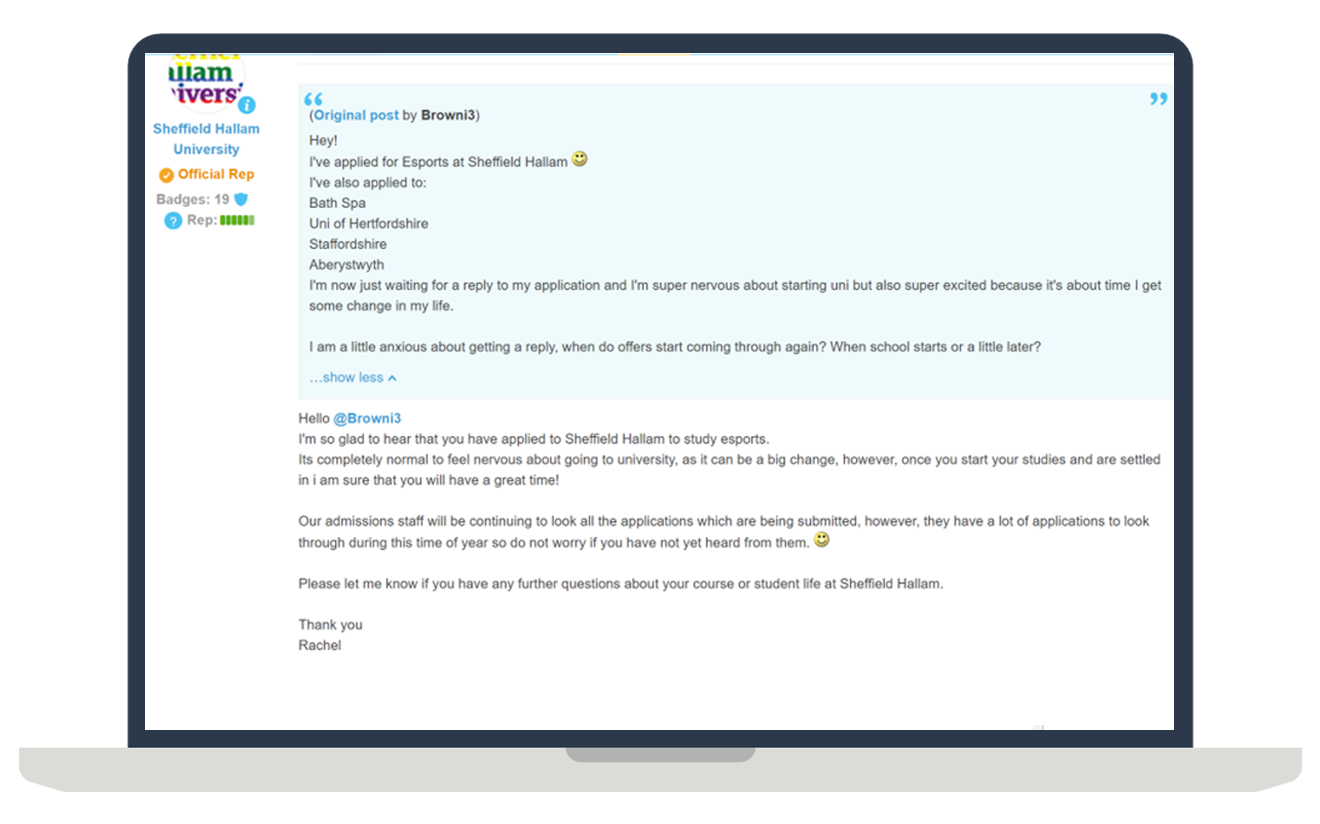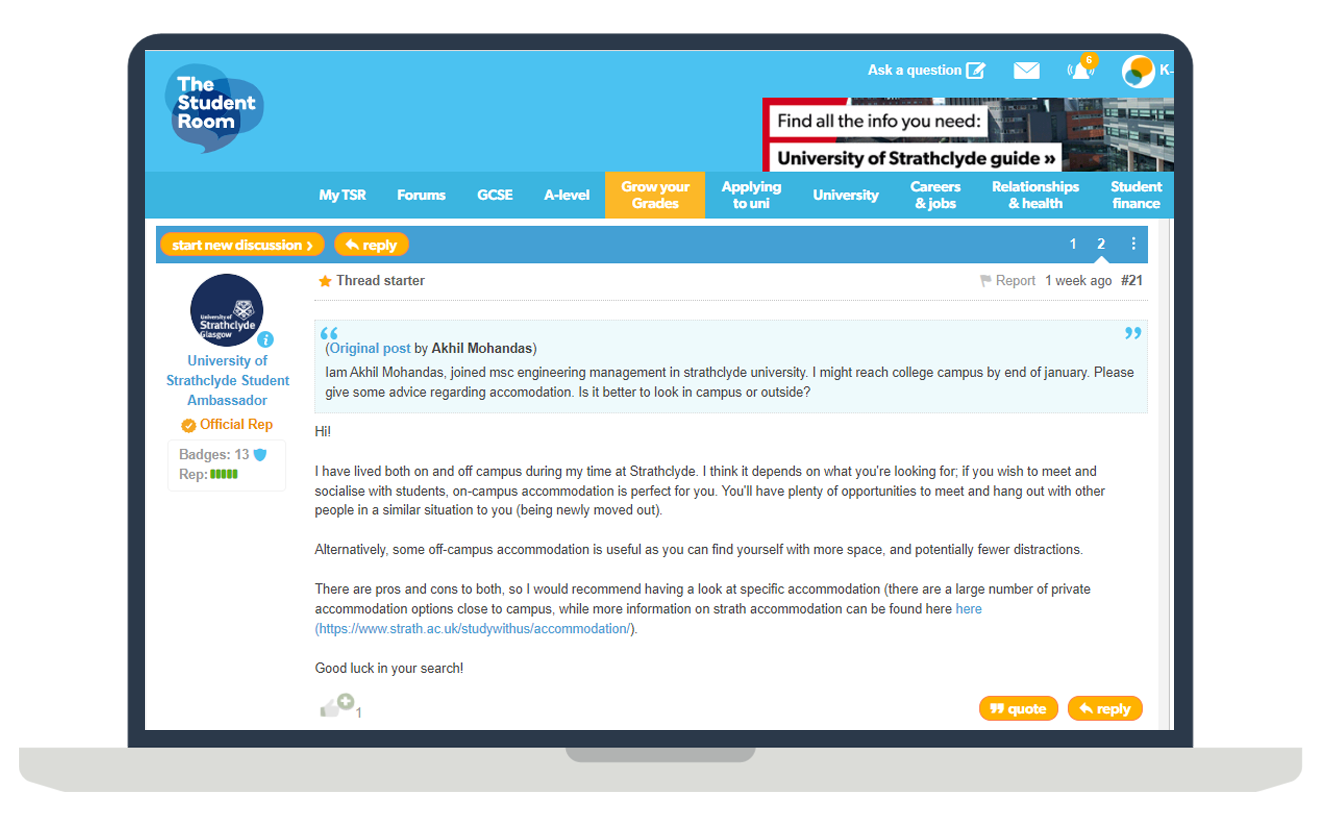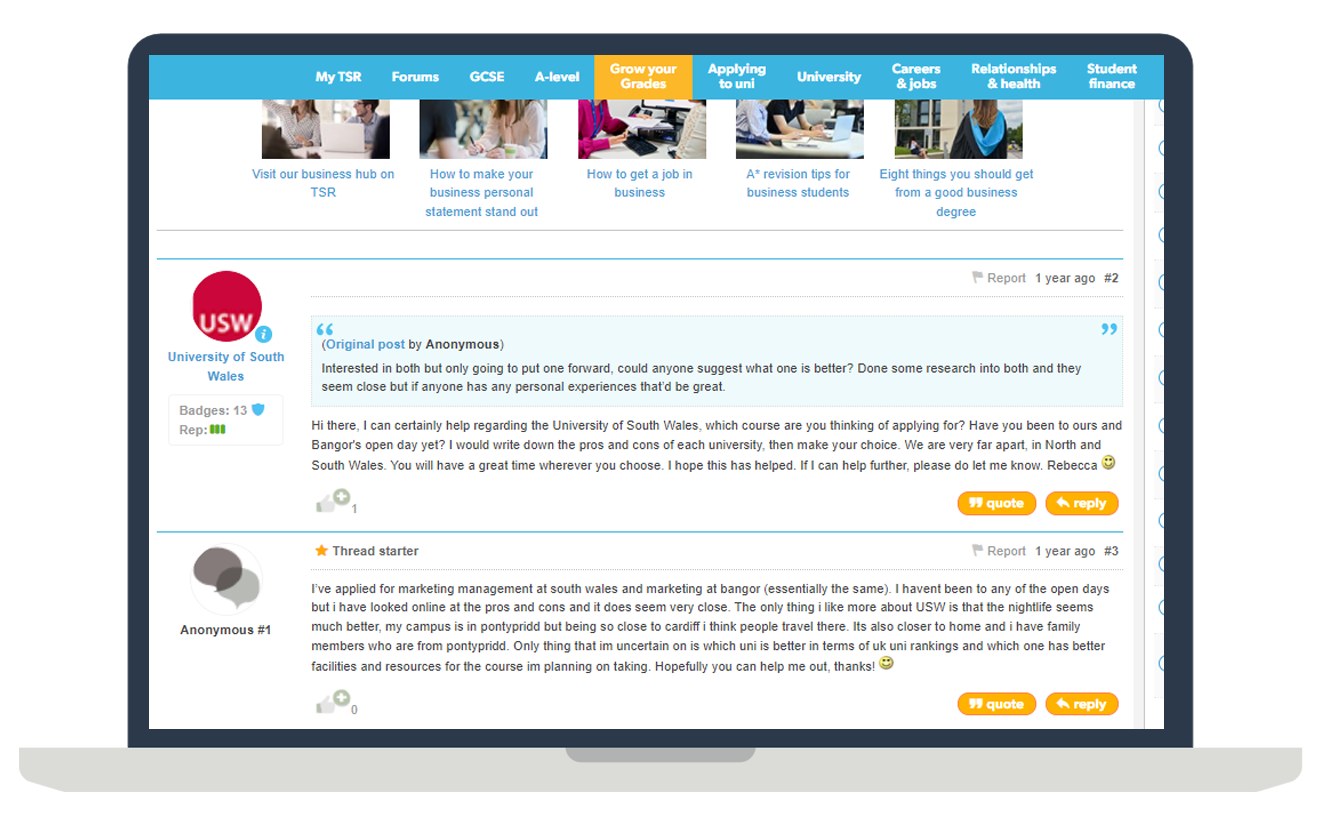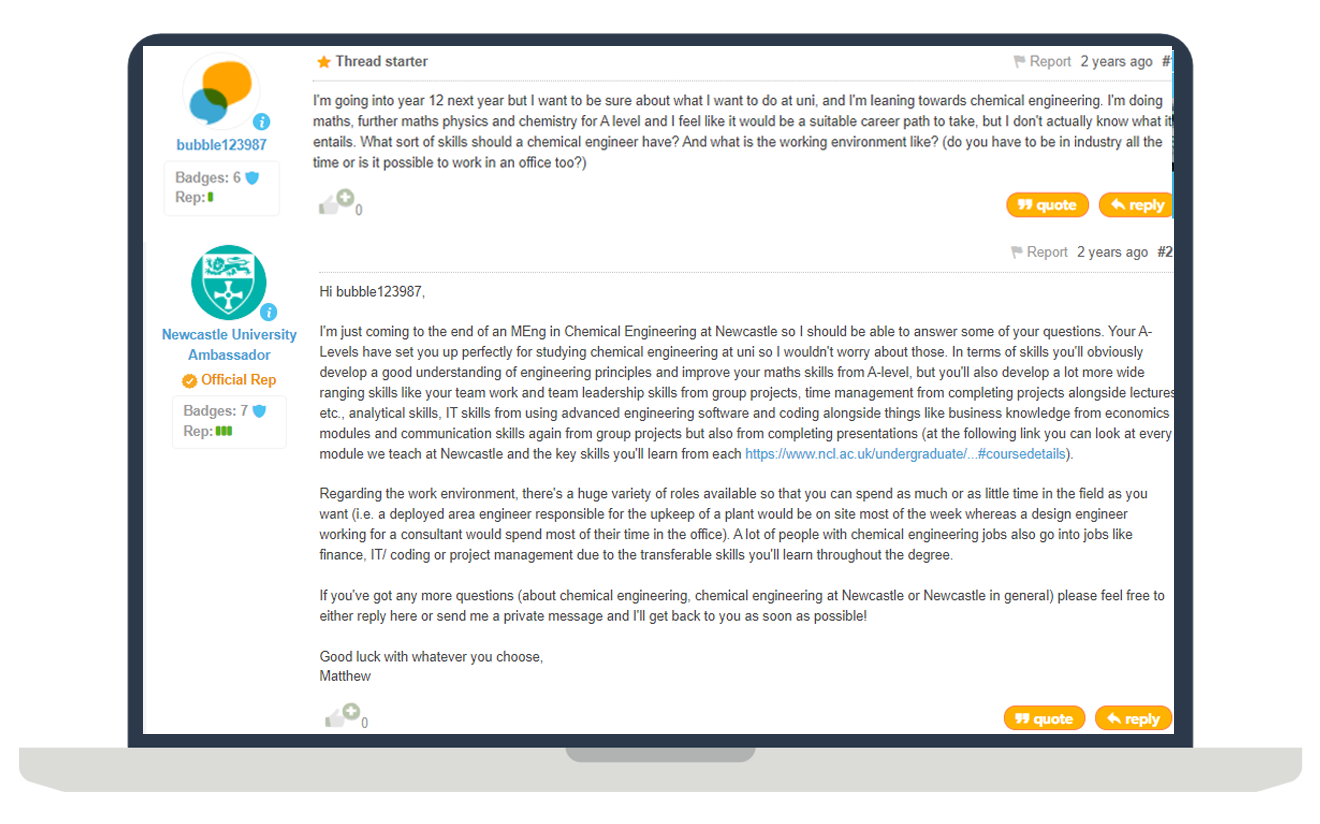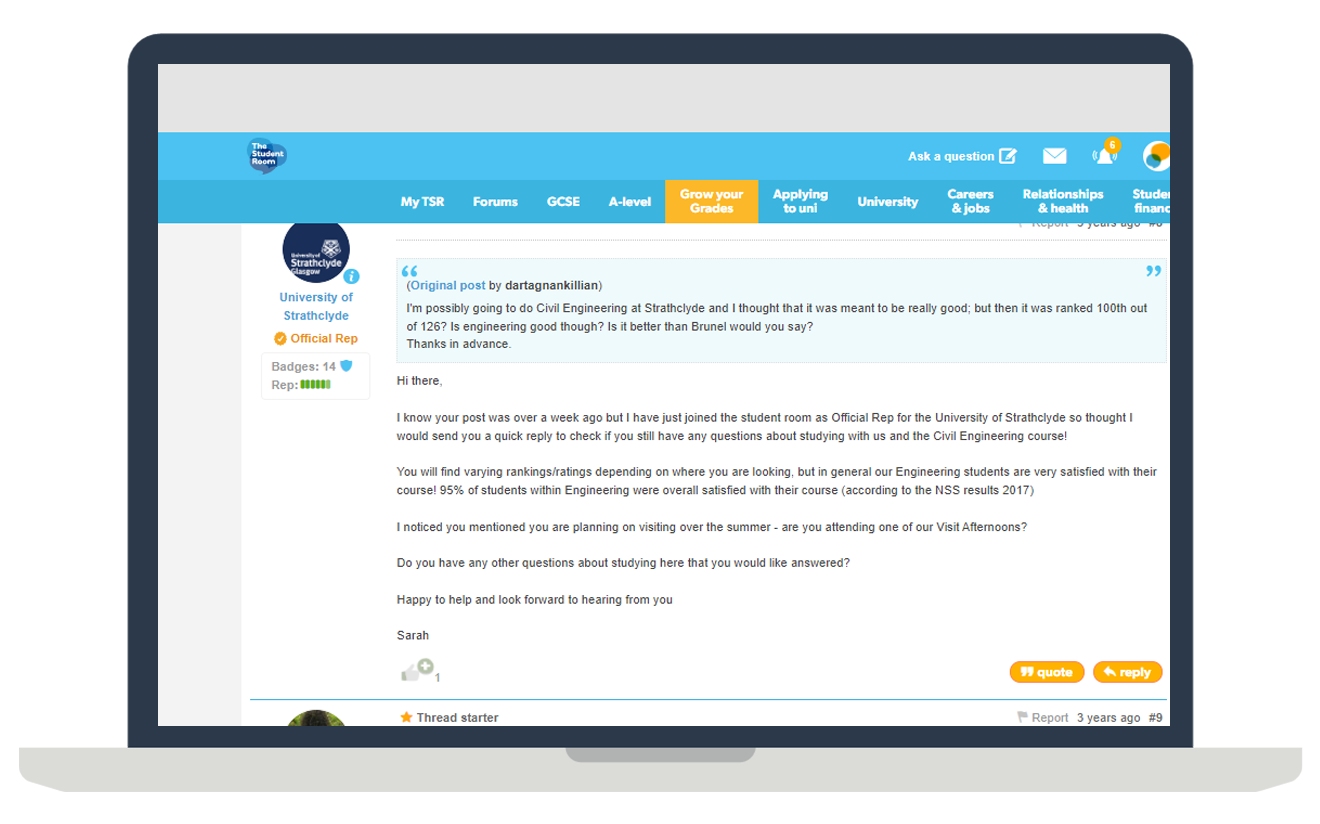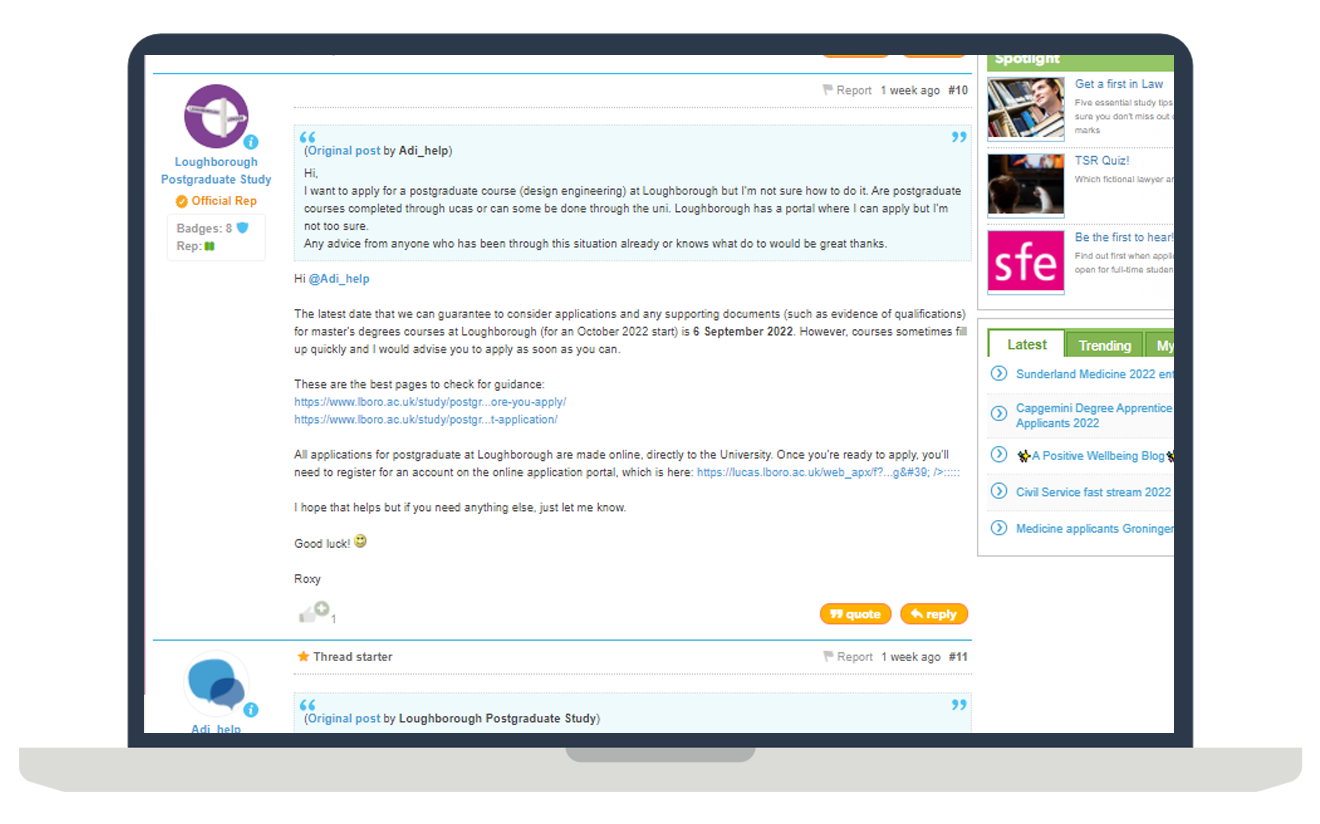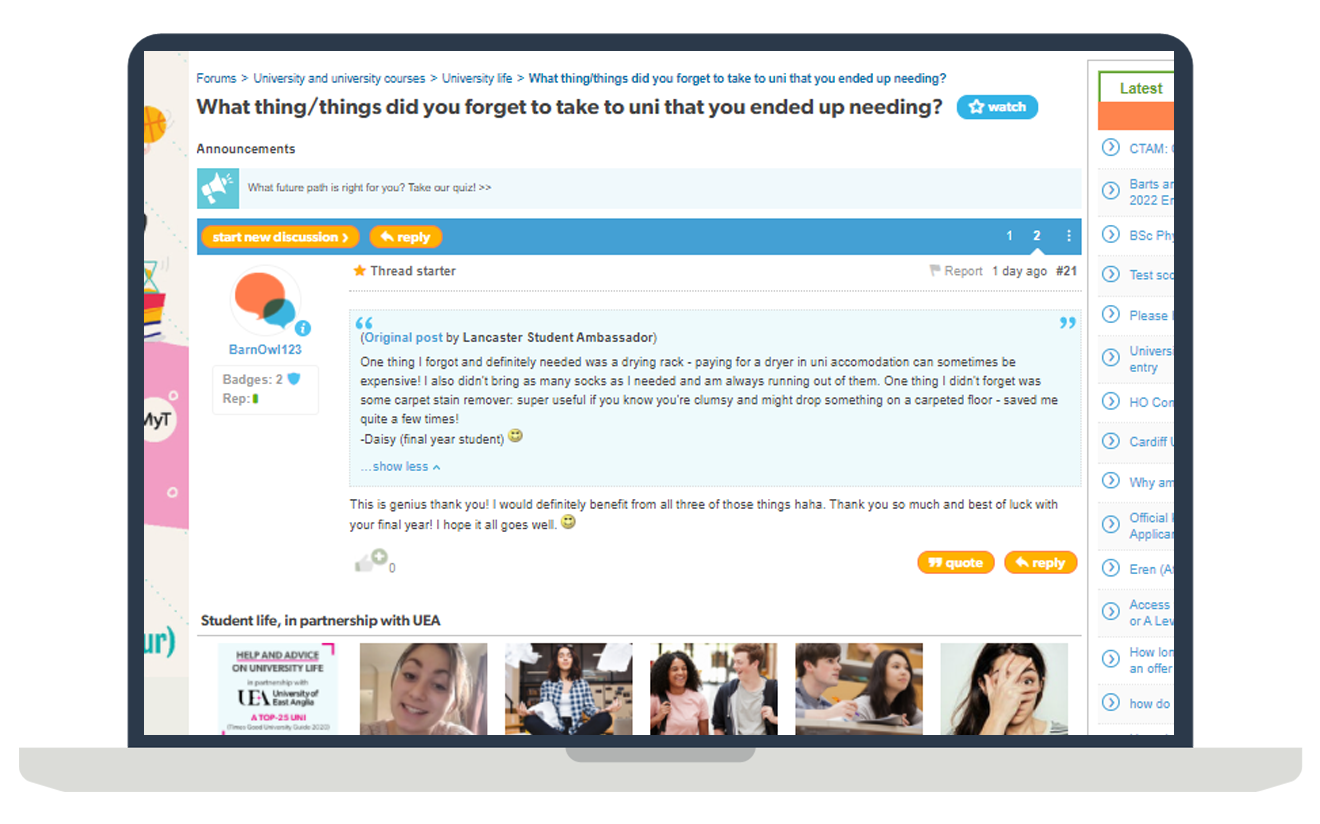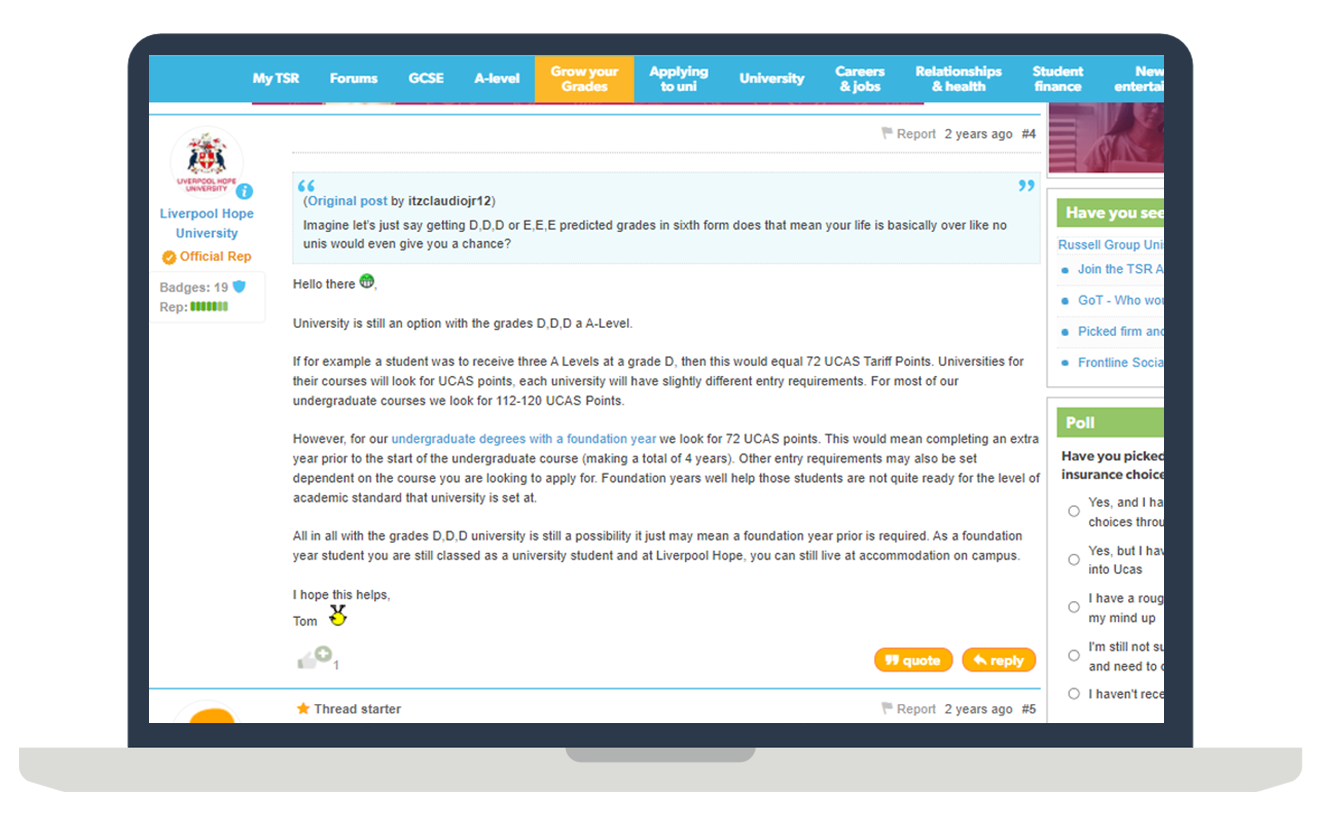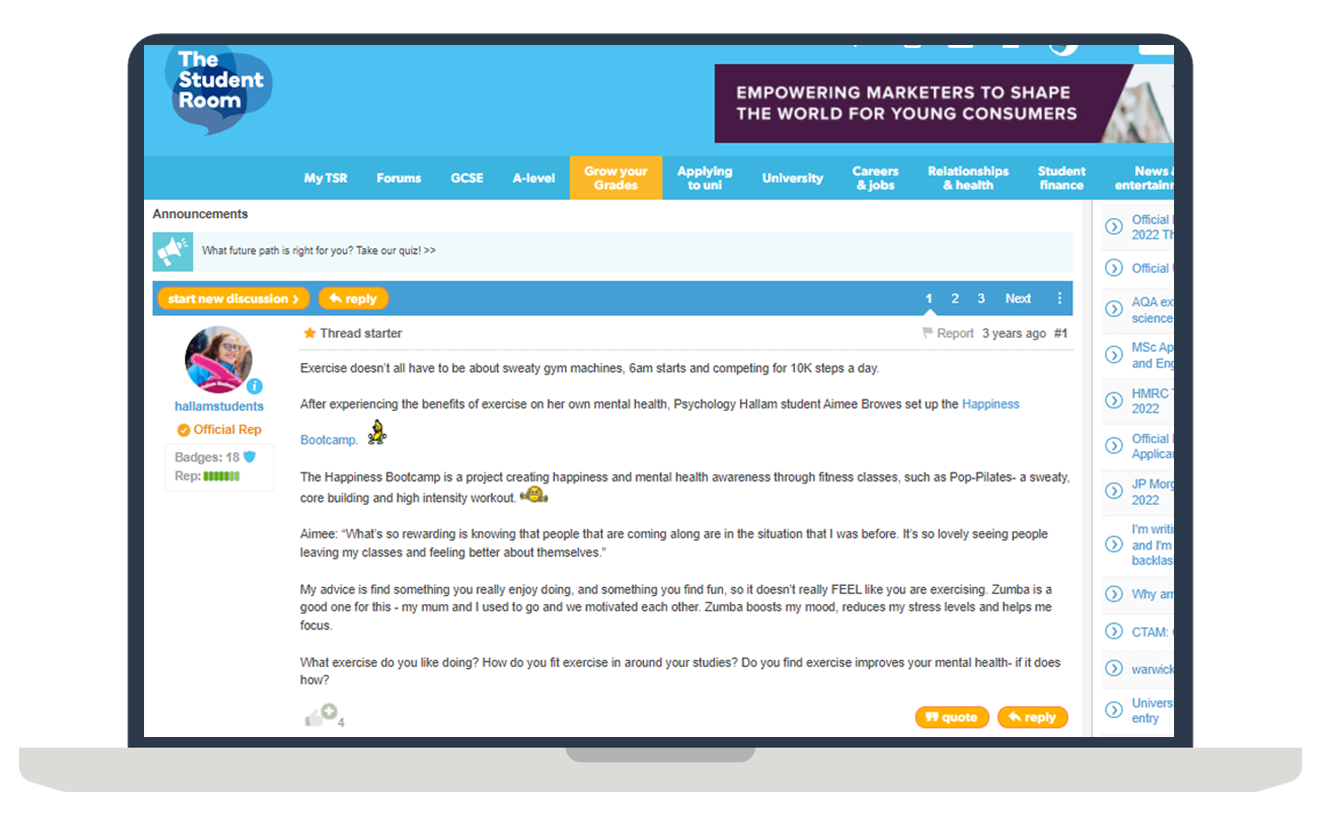Best practice advice for Official Reps
Follow these tips and you'll be a brilliant representative for your organisation.

Tone of voice
Conversational: enter into a discussion and show a genuine interest in what the student is saying- ask them for further details and use open-ended questions.
Human, empathetic and kind: be mindful and sensitive if students are struggling with something.
Signing-off posts: use a name or mention something about yourself: this helps keep your posts relatable and gives students a better insight into who they are speaking to.
Use emojis: keep a friendly, informal tone to the conversation.

Sharing information
Provide informed advice: if you don’t know the answer to a question, try to find out from someone else and feed this back to the student. Alternatively, signpost the student in the right direction for who best to contact.
Avoid marketing speech: if your posts read too much like an advertisement, this will have more of a negative effect than a positive one. The best approach for your official rep account is to make the most of direct engagement with students and provide genuine support, which will build a positive and memorable impression of your brand.

Responding to individuals
Provide each user with a personal response: don’t copy and paste the same information because each student’s situation will be different.
Keep the conversation on-site: students already have access to the information on your website and are often on The Student Room for help making sense of it. If you do link off-site, ensure you provide context and the opportunity for the student to ask further questions.

Consider the lurkers
Post strong content that's valuable to the whole community: include lots of detail in your posts (ensuring it is still relevant to the conversation) to benefit all readers of the thread, even those who do not actively post.
Use polls: this is a good way to increase engagement from users who may be less active on site, but who value the content.

Avoid doing these things
- Advertising - students are looking for honest support and advice
- Closing the conversation
- Linking off to your website with no context
- Copying and pasting the same text in all responses
Best practice examples
Find out how others are using this tool with examples from our site.
Applicant chat | Support | Ask a student | Blog | Comparisons | Advice | Negatives | Postgraduate | Uni life | Application criteria | Community | Careers
Applicant chat thread
Set up an official sticky thread for this cycle's applicants. Good things to include are:
- Conversation starter questions e.g. What course have you applied for?
- Signpost your Official Rep accounts and how users can tag them in posts
- Link useful threads about your university and accommodation e.g. Student stories, studying at X university
- Let applicants know you are available to answer questions
- Be fun and accessible e.g. show your human side with emojis or a snippet of your uni experience
- Sign off using your name(s)
Being supportive
Applicants can be nervous about going to university, so offer empathy and support where you can:
- Make them feel welcome and part of your community
- Normalise their experience (e.g. yes it's a big change, many people feel anxious etc)
- Provide clear guidance e.g. when they will receive offer responses
- Help them to connect with peers and support services
- Listen and respond to their individual circumstances (don't copy/paste replies)
- Don't make assumptions
Ask a current student
Set up a sticky thread called "Ask a current [University name] student" - you might also see this referenced as AMA (Ask Me Anything)
- In your first post, introduce yourself e.g. what you study, what you like about the university
- Invite users to ask you questions
- Mention some of the areas you can advise on e.g. accommodation, nightlife, campus, your course
- Sign off using your name
- Reply to student questions using your personal experiences
- If you don't know the answer, let them know you will find out and come back to them
Blog style
Threads can also be used to share top tips for students (like in this Liverpool Hope example on what to do over the holidays). You could also cover topics like:
- Revision/procrastination advice
- What to pack for university
- A guide to the different accommodation options on campus
- What to consider when choosing a university or degree course
- How to have an amazing Freshers Week
- Five things you wish you had known before coming to university
- Popular societies at your university
- Best spots for nightlife
Comparison threads
What this Official Rep does well:
- Encourages user to attend both open days
- Suggests the user weighs the pros and cons of both options
- Does not advertise her university, just provides useful advice
- Does not criticise or downplay the competitor university
- Offers further help if needed
- Signs off using her name
Student Reps advice
In this example, a current student helps an applicant with questions about a Chemical Engineering course. Some of the things this Rep did well include:
- Established why he has the right expertise to answer (studying the degree the OP is asking about)
- Answers all the specific questions and points in the OP's thread i.e. the user's A-Level choices, what Chemical Engineering entails, skills required, and the working environment
- Gives a sense of what it would be like to study at Newcastle without being too salesy
- Offers to answer further questions and gives the OP options on how to get in touch
- Signed off using his name
Turning a negative into a positive
Official Reps are a powerful tool for reputation management because they allow you to engage in all kinds of conversations. Here are a few tips:
- Don't be defensive or dismissive
- Provide evidence
- Set up keyword alerts so you can respond quickly
- Be aware of media stories and hearsay
- Highlight your university's strengths
- Empathise with students and acknowledge their experiences e.g. if they are upset about long response times
- Take comments as valuable feedback (share what students are saying with your team)
Postgraduate applications
Don't forget to set up applicant and offer holders threads for postgraduate students.
- Advise applicants on how and when to apply
- Answer specific questions about courses and workload
- Help applicants understand what funding is available to them and where to get it
- Consider having a dedicated postgraduate student Official Rep account
- Provide details of your postgraduate events, along with information about your university, the local area and the courses available
University life advice
Don't forget there's more to university than studying. Here are some topics students might ask about in the University Life forum:
- Nightlife and social life e.g. clubbing options
- What to pack for university
- Societies, sports and activities
- Dating
- Fitting in with other students
- Accommodation
- Problems with flatmates
- Struggling with their studies
Exam grades and application criteria
This is an excellent example of a Student Rep supporting an applicant:
- Reassures the applicant that university is an option
- Gives specific examples of the kind of courses they can apply for
- Supportive and non-judgmental tone of voice (emojis keep it friendly)
Could be even better if:
- they invited the user to ask further questions
- they asked the user about the kind of university/course they were interested in
Community building
You can use Official Reps to start discussions or groups on specialist topics like hallamstudents have with this example about fitness and mental health.
- Share your expertise
- Connect with current student trends
- Keep the conversation going by asking open questions and replying to posts
- Show the human, authentic side of your Official Reps to build trust
- Be part of the student community
Careers advice
Our research shows that students are becoming increasingly concerned about employability outcomes. Helpful advice you can provide includes:
- Employability outcomes for specific courses
- Which careers graduates can enter using their degree
- The kinds of careers previous students entered after studying with you
- Career options that might not be on students' radars
- How to access career services
- Whether you have connections with employers or alumni
- How to secure graduate jobs or internships
- How to find part-time jobs while studying
- How to find career mentors within your university
